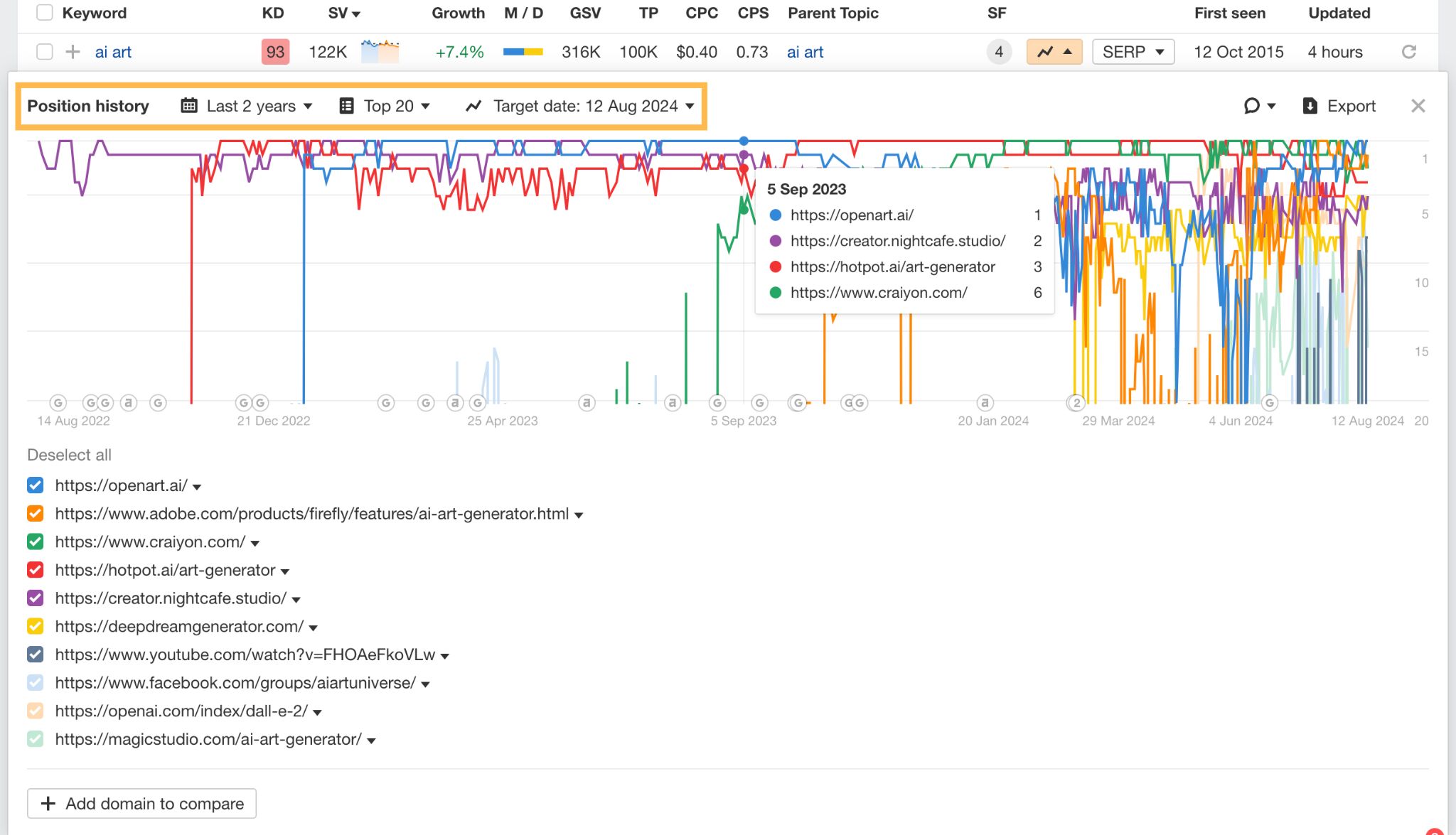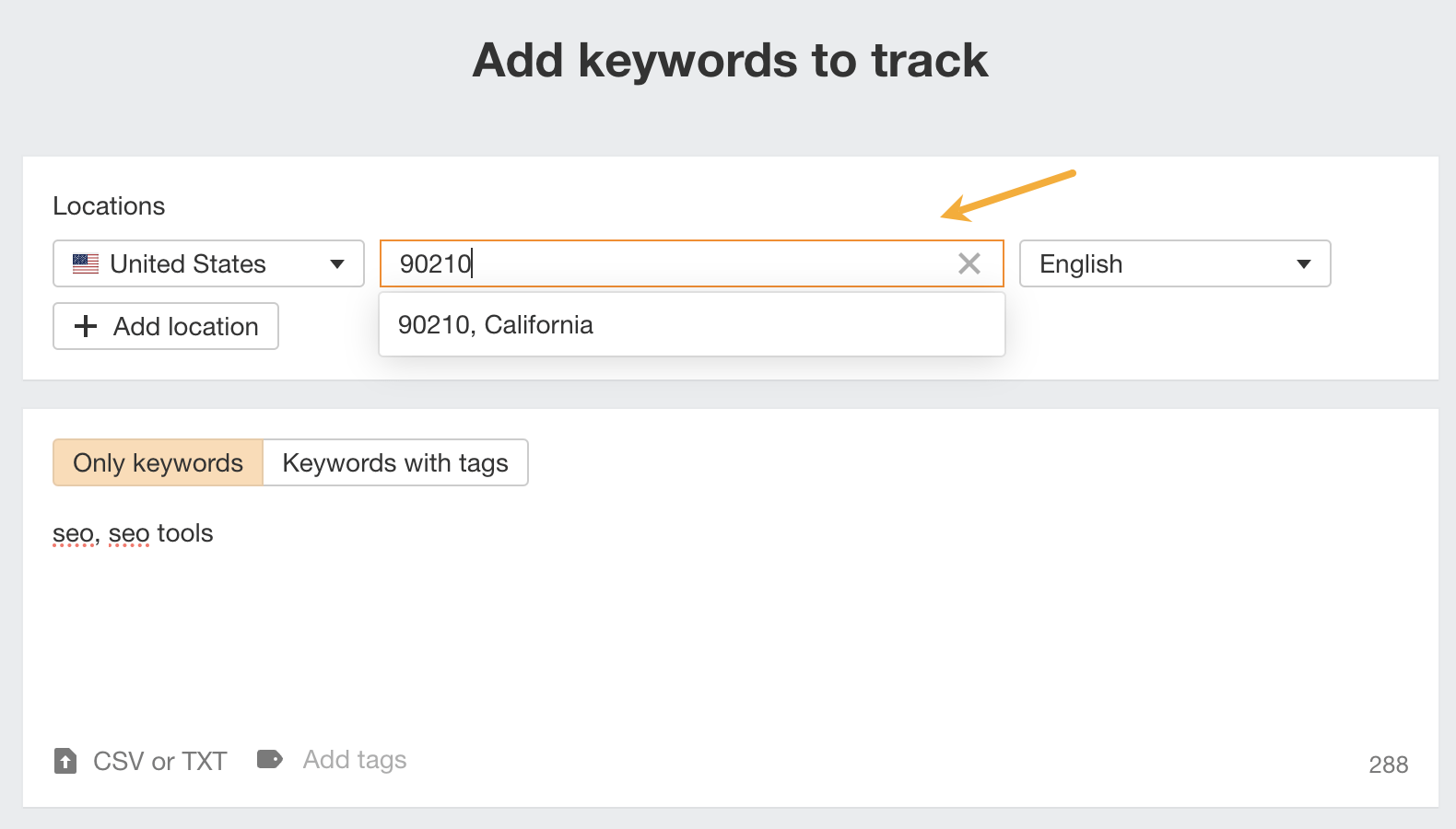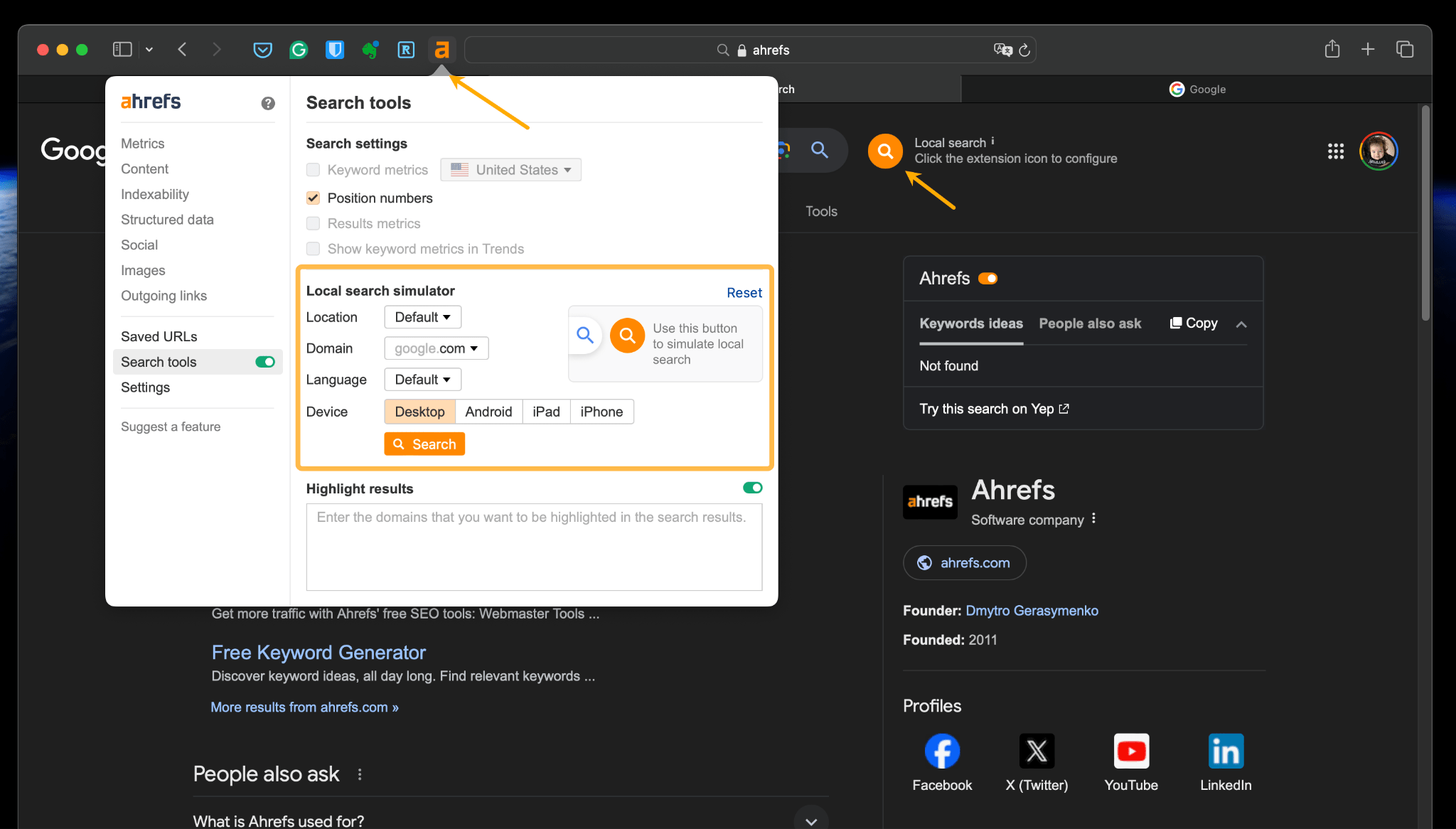Have you ever wondered how websites show up on Google when you type something in? It's like a big competition, really, for spots on those first few pages. Getting noticed online is a bit like having a storefront on a busy street; you want people to see you, to come in, and to find what they are looking for. Knowing where your website stands in this busy digital marketplace is quite important, you know, for anyone hoping to attract visitors.
When you type a question or a phrase into a search engine, what comes back is a page full of links and other bits of information. That page has a name, and it is pretty simple: it's a search engine results page, or SERP for short. Keeping an eye on how your own website appears on these pages, and where it ranks, is a practice called SERP tracking. It’s about checking your website's spot for specific search terms, which is pretty useful for seeing how well your online presence is doing, or so it seems.
This kind of tracking lets you see if your efforts to get found are working. It gives you a clear picture of where your pages sit when people look for things related to what you offer. It also shows you what kind of features appear alongside those results, like special boxes or quick answers. This information helps you make choices about how to get more people to visit your site, which is something many folks are interested in, generally speaking.
Table of Contents
- What is a SERP?
- What is SERP Tracking?
- Why does SERP Tracking matter for your website's visibility?
- How do SERP monitoring tools assist with what is SERP tracking?
- What are SERP features and how do they connect to what is SERP tracking?
- Can a SERP gap analyzer offer help with what is SERP tracking?
- How to begin your journey with what is SERP tracking?
- Observing your reach with what is SERP tracking
What is a SERP?
The term SERP, as you might gather, is simply a shorter way of saying search engine results page. It is the page you see, quite simply, after you put a question or a phrase into a search engine, like Google. Think of it as the answer sheet a search engine gives you. When you type in something you are curious about, the search engine goes to work, looking through countless pieces of information to find the most relevant ones for you. What it presents back is this page, which lists various web addresses, short descriptions, and sometimes other bits of information, all meant to help you find what you are looking for. It is the main way people discover things on the internet, so it's a pretty central part of online activity, actually.
These pages are not just a simple list of blue links anymore, either. They have changed quite a bit over time. What used to be a very basic display has grown to include all sorts of interesting elements. You might see images, videos, maps, or even quick answers right there on the page, without having to click anywhere else. The goal, as it seems, is to make finding information easier and faster for everyone. So, when we talk about a SERP, we are talking about that whole display, with all its different parts, that appears after you ask a search engine a question. It is, in a way, the main interface between your question and the vastness of the internet's information.
What is SERP Tracking?
SERP tracking is the process of keeping tabs on where your website shows up on those search engine results pages. It is, basically, about watching your website's keyword rankings. When we talk about keywords, we mean the words or phrases people type into a search engine when they are looking for something. If you have a website about, say, handmade pottery, you would want to know if your site appears when someone searches for "handmade pottery near me" or "unique ceramic bowls." SERP tracking tools are put together to help you do just that: follow your website’s keyword rankings in search engine results pages, which is pretty much the core of it.
This practice helps you see if your efforts to get found online are paying off. You get to see where your website ranks for the words and phrases that matter to your business or your content. For instance, if you are hoping to be on the first page of results for a particular term, SERP tracking will tell you if you are there, or if you are on page two, or even further back. It is like having a scoreboard for your online visibility. This regular check helps you understand your position and make choices about how to get more people to see your site. It is a bit like checking the weather to see if you need an umbrella; you want to know what is happening so you can prepare, you know.
Why does SERP Tracking matter for your website's visibility?
Having a website is one thing, but having people actually find it is quite another. This is where SERP tracking comes into its own. It matters because it gives you a clear picture of how visible your website truly is to people who are looking for what you offer. Without this kind of insight, you are essentially guessing whether your online content is reaching its intended audience. If your website is not appearing prominently for the words and phrases that are important to your business, then many potential visitors might never even know you exist. It is, therefore, a fundamental step in making sure your online presence is effective, more or less.
The information you get from watching your SERP positions can guide your actions. For example, if you see that your site is slipping in rankings for a particular term, you know you need to put some effort into improving that page. On the other hand, if you notice a page is doing really well, you can try to build on that success. It is about making informed choices rather than just hoping for the best. This ongoing check helps you stay competitive and ensure your content is seen by the people who are most likely to be interested in it. You know, it's about being seen in a crowded place, and this helps you stand out, somewhat.
How do SERP monitoring tools assist with what is SERP tracking?
SERP monitoring tools are like your personal assistants for keeping an eye on your website's performance in search results. They are put together to help you follow your website’s keyword rankings in search engine results pages. Instead of manually searching for every single keyword you care about, which would take ages, these tools automate the whole process. They go out and check where your website ranks for all the search terms you are interested in, bringing all that information back to you in an organized way. This makes it much simpler to see your progress and where you stand against others, which is pretty helpful, obviously.
These tools make it easy to track your campaign progress, helping you see if the things you are doing to get more visitors are actually working. They also help you spot and fix a problem called "cannibalization." This happens when you have multiple pages on your own website competing for the same keywords, which can confuse search engines and split your traffic. A good tool helps you find these instances so you can sort them out. Furthermore, they help you make your targeting efforts better based on the information they gather. They give you the information you need to make smart choices about your online strategy, which is quite useful for any online presence, in a way.
What are SERP features and how do they connect to what is SERP tracking?
When you look at a search results page, you will notice that it is not just a simple list of blue links anymore. There are often other elements that stand out, like little boxes with answers, images, videos, or even quick summaries. These are called SERP features. They are distinct search results that stand out from traditional organic, or unpaid, search results, which are those classic blue links. These features are put there to make the user experience better by providing information in different formats, or so it appears.
To help you stay on top of these SERP features in your specific area of interest, position tracking finds all the unique SERP features for your keywords. This includes things like "AI overviews," which are summaries generated by artificial intelligence that appear right at the top of the page. Knowing which features are showing up for your keywords is really important because these features can sometimes take attention away from the traditional links. If a search engine is providing an answer directly, users might not click on any links at all. So, watching these features as part of what is SERP tracking helps you understand the whole picture of what people see when they search for things related to your website, which is pretty important for planning your content, you know.
Can a SERP gap analyzer offer help with what is SERP tracking?
Yes, a SERP gap analyzer can be a very helpful part of your SERP tracking efforts. This kind of tool looks at the current search results page for a particular keyword and helps you quickly find areas where your website might not be performing as well as it could. It is like having a diagnostic tool for your online presence. It helps you see where there are openings or places where your competitors are doing better than you are, which can be a real eye-opener, basically.
The analyzer provides you with clear suggestions on how to make your own pages better. It analyzes the current situation on the SERP and points out what you might be missing or where you could improve. For example, if your competitors are showing up with a certain type of content or a specific kind of SERP feature that you are not, the gap analyzer will highlight that. This means you get actionable advice on how to improve your pages to compete more effectively. It is a way to turn information from what is SERP tracking into practical steps for improving your website's chances of being seen, which is a big part of getting found online, generally speaking.
How to begin your journey with what is SERP tracking?
Starting with SERP tracking is a pretty straightforward process, actually. The first step is to set up a position tracking project for your website. This involves creating a specific project within a tracking tool for your website. You will need to tell the tool your website's main address, also known as your domain, and then provide the keywords you want to keep an eye on. These are the words and phrases you believe people will use to find your website. It is about telling the tool what to watch out for, in a way.
Once you have set up your project, the position tracking tool goes to work. It allows you to follow your website's ranking for those chosen keywords in Google's top 100 organic, or unpaid, and paid results. This means it checks both the regular listings and any advertisements that appear. By doing this, you get a full picture of where your website stands in the search results, no matter if it is a natural listing or a paid one. This initial setup is quite simple, yet it lays the groundwork for all the valuable information you will gather about your website's online presence, which is pretty useful for anyone with a website, really.
Observing your reach with what is SERP tracking
Beyond just seeing your rankings, SERP tracking also lets you monitor your reach across different geographical areas. This means you can check your website's performance at a national level, looking at how you rank across an entire country. But it also lets you zoom in, so to speak, and monitor your regional and local search performance. This is particularly important for businesses that serve a specific area, like a local shop or a service provider in a particular city or town. Knowing how you appear in searches close to home can make a big difference, you know, for attracting local customers.
For instance, if you run a coffee shop in a specific neighborhood, you would want to know if your website appears when someone searches for "coffee shop near me" while they are in your area. SERP tracking allows you to see these localized results. It gives you insight into whether your efforts to be found by people in your immediate vicinity are successful. This detailed view of your performance, from broad national reach down to very specific local visibility, is a key benefit of using these tools. It helps you understand where your website is being seen, and by whom, which is pretty helpful for making choices about where to focus your efforts, generally speaking.
Related Resources:



Detail Author:
- Name : Gust Gleichner
- Username : taufderhar
- Email : halvorson.harmon@bruen.com
- Birthdate : 1983-01-10
- Address : 6947 Goldner Circles Sidneyhaven, TX 67427
- Phone : (361) 539-0360
- Company : Orn Inc
- Job : Atmospheric and Space Scientist
- Bio : Dolores quae nemo necessitatibus. Corporis occaecati quae aut soluta et. Velit iste qui fuga consequatur dolorem est.
Socials
instagram:
- url : https://instagram.com/kirk_crooks
- username : kirk_crooks
- bio : Dolor quaerat quisquam ut eaque quibusdam. Voluptatem nemo dignissimos est.
- followers : 3396
- following : 748
facebook:
- url : https://facebook.com/kirk.crooks
- username : kirk.crooks
- bio : Enim exercitationem est amet sint sunt.
- followers : 2722
- following : 1465
tiktok:
- url : https://tiktok.com/@kirk3145
- username : kirk3145
- bio : Modi explicabo minima libero.
- followers : 5089
- following : 2085
linkedin:
- url : https://linkedin.com/in/kcrooks
- username : kcrooks
- bio : Eos quidem non aut occaecati rerum est vero nisi.
- followers : 1424
- following : 2672
twitter:
- url : https://twitter.com/kirk1358
- username : kirk1358
- bio : Neque reiciendis dicta ea iure odit. Commodi ducimus atque provident.
- followers : 464
- following : 1233